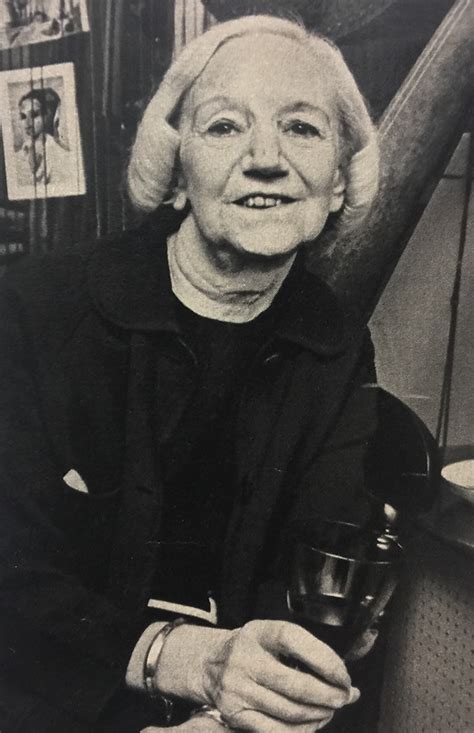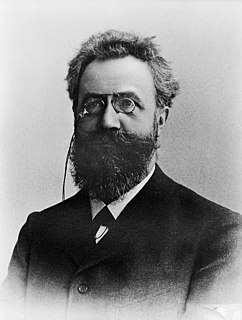A Quote by Frank Herbert
How often it is that the angry man rages denial of what his inner self is telling him.
Related Quotes
If any man would come after me, let him deny himself." The disciple must say to himself the same words Peter said of Christ when he denied him: "I know not this man." Self-denial is never just a series of isolated acts of mortification or asceticism. It is not suicide, for there is an element of self-will even in that. To deny oneself is to be aware only of Christ and no more of self, to see only him who goes before and no more the road which is too hard for us. Once more, all that self denial can say is: "He leads the way, keep close to him.
A self-made man, if he is made at all, has already won the battle of life. . . . he has learned to resist. He has learned the value of money, and how to refuse to spend it. He has learned the value of time, and how the conversion of it into useful things will make of his life something worthwhile. He has learned to say no, to say no at the right time and then to stand by it. Without resistance, and the self-denial which it often imposes, there is no real happiness. In the quest for happiness man must learn that temptation resisted strengthens the mind and the soul.
The man has a curious inborn conviction of his own superiority which is quite unshakeable. All his life he has bullied and browbeaten those around him by his high-and-mightiness and his atrocious temper. As a boy he terrorized his entire family by his tantrums, when, if thwarted, he would throw himself on the floor and yell till he went blue in the face. It has been much the same ever since. Everyone's terrified of his rages. He has only to start grinding his teeth, and people fall flat before him.
His constant fight is with the Nafs (self-interest), the root of all disharmony and the only enemy of man. By crushing this enemy man gains mastery over himself; this wins for him mastery over the whole universe, because the wall standing between the self and the Almighty has been broken down. Gentleness, mildness, respect, humility, modesty, self-denial, conscientiousness, tolerance and forgiveness are considered by the Sufi as the attributes which produce harmony within one's own soul as well as within that of another.
Self-observation brings man to the realization of the necessity of self-change. And in observing himself a man notices that self-observation itself brings about certain changes in his inner processes. He begins to understand that self-observation is an instrument of self-change, a means of awakening.
Man offers himself to God. He stands before Him like the canvas before the painter or the marble before the sculptor. At the same time he asks for His grace, expresses his needs and those of his brothers in suffering. Such a type of prayer demands complete renovation. The modest, the ignorant, and the poor are more capable of this self-denial than the rich and the intellectual.
Every work of art reaches man in his inner powers. It reaches him more profoundly and insidiously than any rational proposition, either cogent demonstration or sophistry. For it strikes him with two terrible weapons, Intuition and Beauty, and at the single root in him of all his energies... Art and Poetry awaken the dreams of man, and his longings, and reveal to him some of the abysses he has in himself.
What men and women need is encouragement. Their natural resisting powers should be strengthened, not weakened ... Instead of always harping on a man's faults, tell him of his virtues. Try to pull him out of his rut ... Hold up to him his better self, his real self that can dare and do and win out! ... People radiate what is in their minds and in their hearts.
Ideas are powerful things, requiring not a studious contemplation but an action, even if it is only an inner action. Their acquisition obligates each man in some way to change his life, even if it is only his inner life. They demand to be stood for. They dictate where a man must concentrate his vision. They determine his moral and intellectual priorities. They provide him with allies and make him enemies. In short, ideas impose an interest in their ultimate fate which goes far beyond the realm of the merely reasonable.





































